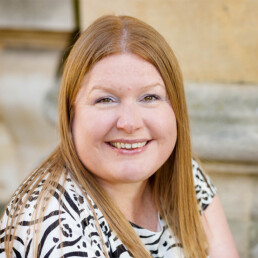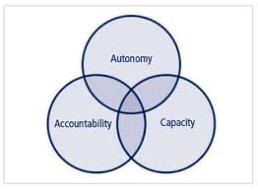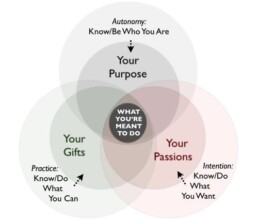
Hannah Wilson
noun. the right or condition of self-government; (in Kantian moral philosophy) the capacity of an agent to act in accordance with objective morality rather than under the influence of desires.
In developmental psychology and moral, political, and bioethical philosophy, autonomy is the capacity to make an informed, uncoerced decision. Autonomous organisations or institutions are independent or self-governing.
I thrive in cultures which enable autonomy. I love being autonomous.
When I reflect on my roles over time I realise that my job satisfaction, my sense of fulfilment and my wellbeing were deeplf affected by how autonomous I could be in each role, in each organisation, in each context.
As an Assistant Principal, my Principal trusted me, he empowered me to be autonomous and I thrive. As a Vice Principal, my new Principal controlled us, he micro-managed me so we were disempowered. As a Headteacher I was initially quite autonomous, and then the Trust became more and more controlling, each line manager tried to rein me/ us in (also all men).
The tensions between my line manage, my employer and I have all stemmed back to my autonomy being restricted or removed. I wonder if perhaps my frustration also links back to the patriarchal power structures at play.
Our ability to be autonomous comes from our ability, our experience, our capacity, our confidence along with how we are trusted and how we are held to account. Our ability to enable and empower others to be autonomous relies on our trust and faith in them.

For me, autonomy is rooted in independence. It is fuelled by the need for freedom. It is framed through integrity.
Our schools do not enable and empower teachers and leaders to be autonomous. Our system conditions us to be compliant. Our society trains us to follow rules, to not be disruptive or rebellious.
Do we fear autonomy? Are we afraid of losing control?
“The 3 things that motivate creative people: autonomy, mastery and purpose”.
Daniel H.Pink
We go into teaching as our purpose, we deepen our understanding and polish our craft to become masters, as creative beings it is the autonomy or lack of that drives us out.
“Autonomy is different from independence. It means acting with choice”.
Daniel H. Pink
We enable and empower others, the children we serve, the teams we lead to be independent and to make choices. Being autonomous is also about owning those choices and the consequences that arise.
“Control leads to compliance: autonomy leads to engagement”.
Daniel H. Pink
We seek to self-manage and to self-regulate, we strive to enable others to do the same. When we relinquish control, when we release the need for compliance, autonomy increases and engagement thrives.
“Alignment enables autonomy”.
Henrik Kniberg
After 18 years of working in the system, I have taken the leap of faith to work independently. I am now truly autonomous. My purpose, my passion and my gifts are in alignment as my intentions, my practice and my autonomy are brought to life – they are working in synergy with one another.

I know who I am, I know what I want to do and I know what I can do. I know that I am doing what I am mean to do because I am happy, content, stress-free. I feel purposeful, passionate and fulfilled.
What I didn’t realise when I made that leap of faith was that I had already wings – I had built them over time. As I jumped from the cliff and left security, stability and safety behind me, my wings have enabled me to transform into the autonomous being I have also needed to be. I make informed uncoerced decisions, I am independent and self-governing. I am empowered in my autonomy.

